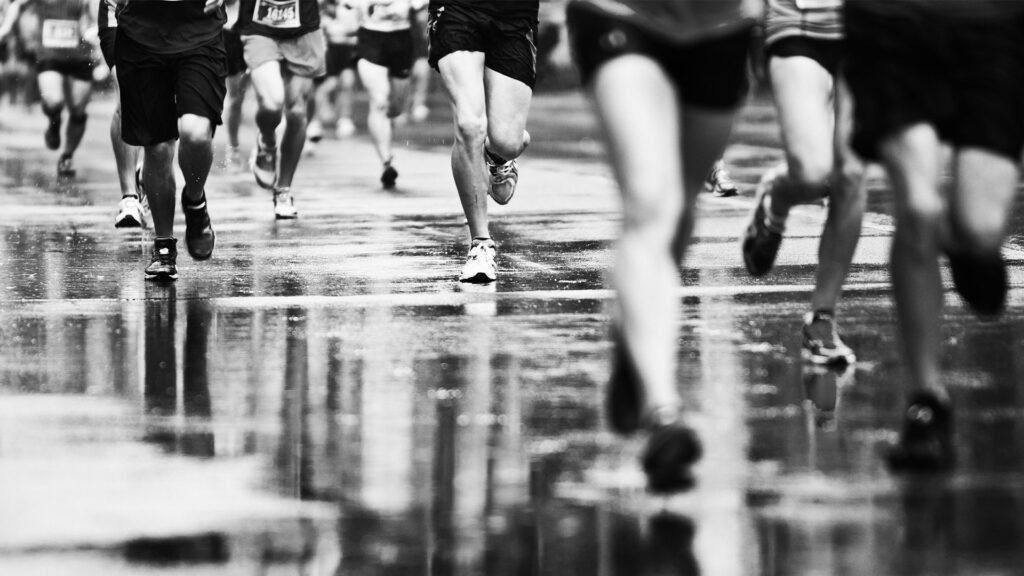Longevity: Could extreme exercise help you live longer??
How does extreme exercise affect lifespan? Study offers new insight
Share on Pinterest
A new study shows that those who participate in extreme exercise may live longer than the general population. TREVOR JOHNSTON / Eye Meets World Photography/Getty Images
- Regular exercise is an important part of living a healthy life, but some research suggests intense exercise may do more harm than good.
- A new study challenges previous findings and suggests that those who participate in extreme exercise may live longer.
- Researchers tracked a select group of elite runners capable and found they could live around five years longer on average than the general population.
- Further studies on types of exercise and duration are needed to substantiate these findings.
While everyone knows that exercising regularly is important for a healthy life, some previous studies have shown that intense exercise may have the opposite effect.
A new study, recently published in the British Journal of Sports Medicine, suggests that people who participate in extreme exercise may live longer.
Researchers tracked a select group of elite runners capable of running a sub-4-minute mile and found they may live five years longer on average than the general population.
André la Gerche, PhD, a sports cardiologist and head of the Heart, Exercise and Research Trials (HEART) Laboratory supported by St Vincent’s Institute of Medical Research and the Victor Chang Cardiac Research Institute, and lead author of this study, explained to Medical News Today:
“There is a stubbornly held view in the community that you can do too much exercise. We thought that this was an opportunity to look at an exercise feat that, at the time, was thought impossible and that may stress the body beyond its limits. There was speculation that attempting such feats could have a detrimental effect on the body, Thus, it was an opportunity to address this fallacy.”
Elite runners may live longer than the average person
For this study, la Gerche and his team focused on the longevity of a group of the first 200 male elite runners to run a sub-4-minute mile. The runners were from 28 different countries across North America, Europe, Oceania, and Africa.
All study participants were born between 1928 to 1955 and were on average 23 years old when they ran a mile in under 4 minutes.
Of the 200 participants, 60 — or 30% — had died, leaving 140 still alive at the time of the study.
Researchers found the average age of death for the study participants overall was 73, but the average age for the surviving elite runners was 77.
At the study’s conclusion, the scientists discovered:
- Generally, those who ran a sub-4-minute mile lived about five years more than their predicted life expectancy based on age, sex, birth year, and nationality.
- Those who ran a mile in under 4 minutes during the 1950s lived an average of nine years longer than the general population.
- Participants accomplishing the sub-4-minute mile in the 1960s lived about 5.5 years longer, and in the 1970s lived about 3 years more.
Findings similar to those seen in elite cyclists
la Gerche said they were not surprised by these findings regarding elite runners, as they are consistent with several other publications, such as the Tour De France cyclists, in which greater longevity has been observed.
“Our study set out to see how exercise affected elite athletes over the long term,” la Gerche said.
“We know that elite athletes have bigger heartsTrusted Source due to their sustained aerobic output, and there was some belief that this could affect their health and longevity, but we found the opposite. Five years of extra life compared to (the) average is very significant, especially when we found that many of these runners not only enjoyed long lives but were also healthy. They live better, for longer.”
“This is one of many projects that we are undertaking related to cardiovascular changes and health and exercise,” he added. “We continue to assess the factors that lead to favorable outcomes in those training regularly.”
How can you live longer if you’re not an elite athlete?
Of course, not every person can run a sub-4-minute mile or be an elite athlete. So, how can the general population apply these findings to their own exercise regimen to hopefully extend their lives?
“Although we are told not to extrapolate in science, personally, I use this data as an aspiration to try and emulate as many lifestyle factors as a 4-minute miler: good diet, modest alcohol, dedication, and regular, intense exercise,” la Gerche said.
“Whilst I can’t necessarily share the genetic predisposition that likely also contributes to elite speed, the rest I can try to achieve.”
Jennifer Wong, MD, a board certified cardiologist and medical director of Non-Invasive Cardiology at MemorialCare Heart and Vascular Institute at Orange Coast Medical Center in Fountain Valley, CA — who was not involved with this study — told MNT:
“I think it reiterates the importance of exercise, maybe not necessarily this extreme level of exercise, but just any exercise being helpful for one’s cardiovascular health and ultimately, hopefully extending one’s life that way.”
Tracy Zaslow, MD, a board certified pediatrician and pediatric and adult primary care sports medicine specialist at Cedars-Sinai Kerlan-Jobe Institute in Los Angeles, CA, not involved in this study, told MNT that more research is needed to determine how to better extrapolate this data.
“While I would not recommend changing practice based on this single study, it may be reassuring to know that there may not be as many risks of ‘overdoing it’ as previously believed. I would encourage readers to be inspired by these elite athletes to improve their own fitness, aiming for moderate exercise as often as possible,” Zaslow said.
